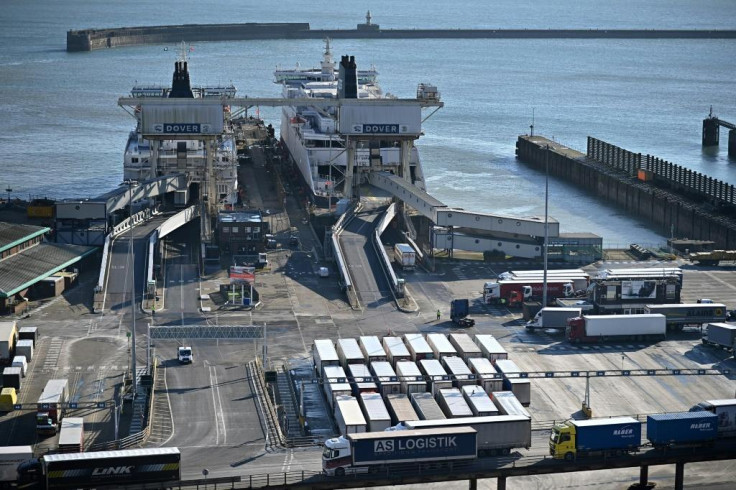Brexit and Covid slash UK exports to EU: report
Truckers heading over the Channel to France now require a negative Covid test before making the crossing.
Brexit and coronavirus have slashed the volume of surface freight leaving Britain for the European Union by 68 percent from last January, according to figures published in The Observer on Sunday.
The stark drop in goods carried on ferries and through the Channel tunnel was registered by lobby group the Road Haulage Association (RHA) after a survey of its international members, said the weekly.
RHA chief executive Richard Burnett has sent a letter to minister Michael Gove warning that the new checks required since Britain fully left the EU's single market on January 1 were deterring exporters from shipping to the continent.
He said the government had only hired around 20 percent of the extra border staff needed to process the extra paperwork.
"Michael Gove is the master of extracting information from you and giving nothing back," Burnett told the newspaper.
"Pretty much every time we have written over the last six months he has not responded in writing."

Britain sent around ?294 billion ($403 billion, 335 billion euros) of goods to the EU in 2019, accounting for around 43 percent of its total exports, according to official figures.
The situation threatens to get worse in July, when Britain implements its full range of physical border checks.
Trade experts told the paper that the sharp fall in exports was the "coincidence of Brexit and the pandemic".
Britain and Europe have imposed tight travel restrictions during the latest wave of the pandemic, with France temporarily imposing a total ban on vehicles entering from Britain shortly before Christmas.
Truckers heading over the Channel to France now require a negative Covid test before making the crossing.
A government spokesperson told The Observer that "we do not recognise the figure provided on exports".
"Thanks to the hard work of hauliers and traders to prepare for change, disruption at the border has so far been minimal and freight movements are now close to normal levels, despite the Covid-19 pandemic," they added.
Copyright AFP. All rights reserved.
This article is copyrighted by International Business Times, the business news leader





















